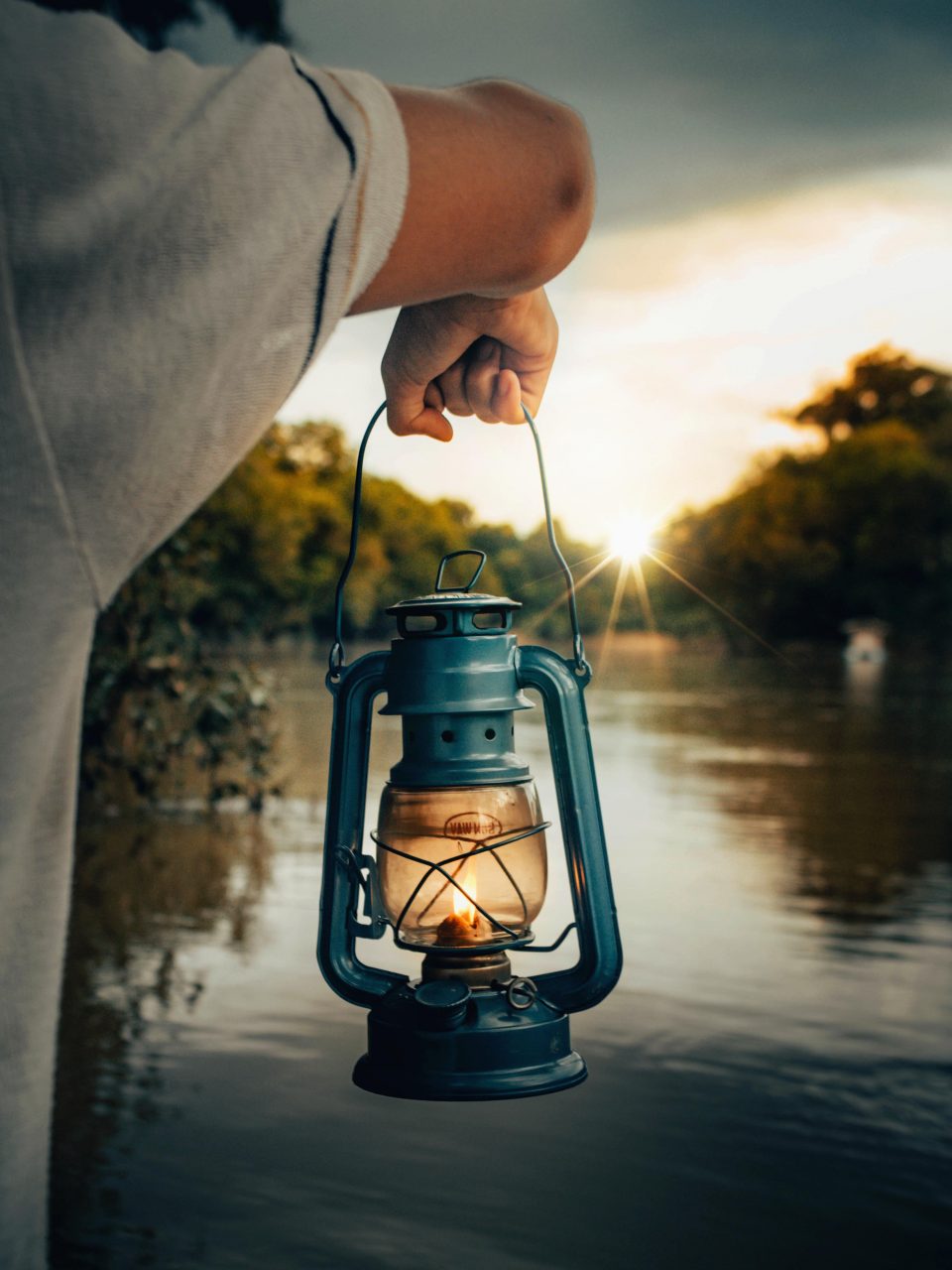Fantasie – Zustimmung zu sich selbst geben
Hallo zusammen, hier ist Sean. Nachdem wir uns in unserer letzten Blog-Lesson mit Objektifizierung beschäftigt haben, denke ich, dass es ein guter Zeitpunkt ist, über unsere Fantasien und Vorstellungen zu sprechen.

So tun als ob, so tun als ob
Als Kinder haben viele von uns einen imaginären Freund, spielen Räuber und Gendarm, spielen Mutter-Vater-Kind. Wir reiten auf fiktiven Pferden, kämpfen mit erfundenen Drachen und manche von uns spielen sogar Arzt.
Im Ergebnis davon erzählen und spielen wir die Informationen und Bilder nach und verstärken sogar, was wir als Kinder sehen, hören und erleben. Wir nennen das „So-tun-als-ob“. Als Erwachsene stellen wir uns etwas vor und nennen es Fantasieren. Unsere Fantasien reichen von beruflichen oder gesellschaftlichen Vorstellungen bis hin zu romantischen und sogar erotischen Schwärmereien.
Außerdem können wir über alles phantasieren, was wir uns vorstellen können. Die Fantasie ist eine großartige Möglichkeit, unsere tagtäglichen Ideen, Gefühle und Informationen zu erforschen.
Fantasie haben heißt nicht, sich etwas auszudenken, es heißt, sich aus den Dingen etwas zu machen.
Thomas Mann
Sich selbst die Erlaubnis geben
Fantasie kann als Erlaubnis verstanden werden, sich Gefühle, Erfahrungen und Situationen vorzustellen und darüber nachzudenken. Dazu gehören Situationen, die wir in der realen Welt vielleicht nicht erleben wollen oder können.
Mit anderen Worten: Fantasien sind eine Möglichkeit, die Bilder und Werte zu verarbeiten, die wir in der Interaktion mit Familie, Freunden und Kollegen erfahren. In einem größeren Rahmen verarbeiten wir auch die Einflüsse von Gesellschaft, Medien und Kultur. In diesem Sinne können Fantasien als Wachträume betrachtet werden, die wir kontrollieren können.

Uns selbst die Zustimmung erteilen
Es kann eine sehr mächtige Erfahrung sein, wenn wir uns selbst die Zustimmung und Erlaubnis geben, unsere inneren Prozesse, unsere Gedanken, unsere Wünsche und unseren Stress zu kontrollieren.
So kann unsere Vorstellungskraft zum einen als Werkzeug zum Stressabbau dienen. Sie kann zum anderen auch ein sicherer Ort sein, an dem wir unser intimstes und empfindlichstes, sich entwickelndes und wachsendes Selbst erforschen können.
Fantasie kann auch ein Heilungsprozess sein, bei dem wir uns Alternativen und Prozesse vorstellen und erfahren können. Damit köönnen wir unser Gefühl von Sicherheit, Stärke und Ermächtigung fördern.
Folglich ist die Fantasie sowohl eine Begabung als auch eine Fähigkeit, die wir bei uns selbst und anderen fördern und unterstützen sollten.
Nur wir selbst
Unsere Fantasien gehören in erster Linie uns und nur uns. Wir sind nicht verpflichtet, sie mit anderen zu teilen. Wir sind die alleinigen Eigentümer und Anwender unserer inneren Welt, zu der auch unsere Fantasien gehören. Daher sind wir frei und unabhängig von allen Fragen, Kommentaren oder Kritiken, mit Ausnahme unserer eigenen.
Die Fantasie ist also eine Möglichkeit, unsere eigenen positiven und negativen Gedanken über unsere eigenen Wünsche und Freuden besser zu verstehen und zu erkennen: unsere privatesten Freuden und Wünsche.
Phantasie ist nicht Ausflucht. Denn sich etwas vorstellen, heißt, eine Welt bauen, eine Welt erschaffen.
Eugène Ionesco
Fantasien für Erwachsene
Intime Fantasien von Erwachsenen können romantischer, sinnlicher, körperlicher und erotischer Natur sein. Diese Fantasien sind grenzenlos. Sie können vom Austausch eines wissenden Lächelns bis zum Schenken oder Empfangen von Blumen reichen. Sie können von einer Berührung oder Liebkosung bis zum Geschlechtsverkehr reichen. In der Fantasie können auch Fetische, Kink und andere intime oder sogar gewaltsame Interaktionen erforscht werden.
Fantasie ist jedoch genau das: Fantasie. Eine Fantasie ist eine Alternative zur Realität, in der wir die Kontrolle haben. Wir haben die Sicherheitsvorkehrungen getroffen, um unser eigenes Wesen, unsere Unabhängigkeit und unsere Grenzen zu wahren.
Ihre Fantasie gehört Ihnen
Zusammenfassend lässt sich sagen, dass die Wahrheit über die Fantasie darin besteht, dass Sie die Kontrolle und die Zustimmung zur Kontrolle haben. Ihre Fantasie gehört Ihnen. Sie dürfen sie haben, genießen und nach Belieben verändern, wann immer Sie wollen. Die Entscheidung, eine Fantasie oder mehr zu teilen, ist eine andere Lektion.
In diesem Sinne werde ich Sie und Ihre Fantasie weiter machen lassen. Ich würde mich freuen, Ihre Gedanken, Kommentare oder Fantasien zu hören. Dies ist Sean und beim nächsten Mal werden wir einige Fantasien erforschen, die vielleicht nicht in Ihrem besten Interesse sind und wie Sie damit umgehen können.

Das ist alles für den Moment!
Sean hier. Achten Sie diese Woche darauf, wie Sie sich selbst gegenüber (und gegenüber denen, die Ihnen wichtig sind) Fantasien empfinden und schauen Sie, was passiert.
(Für konkretere Vorschläge, können Sie mich unter kontakt@praxis-wiebersch.de kontaktieren).
Wenn Sie Fragen oder Kommentare haben oder mehr Informationen wünschen, können Sie mich kontaktieren. Nächstes Mal melde ich mich mit Blog-Lektion 11 mit einer Fortsetzung des Themas Fantasie zurück. Mehr über mich
Unsere früheren Blog-Lektionen (auf deutsch):
Unsere früheren Blog-Lektionen (auf englisch):
1–2–3–4–5–6–7–8–9–10–11–12–13–14–15–16–17–18–19–20–21–22–23–24–25–26–27–28–29–30–31–32–33–34–35–36–37–38–39–40–41–42–43–44–45–46–47–48–49–50– 51– 52–53 –54– 55–56 –57–58–59–60–61–62–63–64








